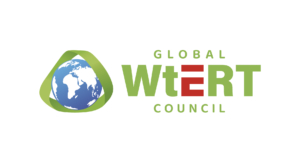M.S. Thesis: Carbon Mitigation Cost of WTE and Comparison with Other Waste Management Methods
By Lin Ao
Advisor: Prof. A.C. (Thanos) Bourtsalas
Department of Earth and Environmental Engineering
Fu Foundation School of Engineering & Applied Science
Columbia University
May 2017
Global warming is associated with adverse effects on biodiversity, human survival and development and the earth environment. It is therefore necessary to reduce the Greenhouse Gas (GHG) emissions that are associated with climate change. Among various methods to slow down greenhouse effect, waste management can play a key role, directly or indirectly.
The proper and efficient management of municipal solid waste (MSW) is vital to achieving sustainable development, since poor waste management impacts on public health and the environment and may affect the development and quality of life of future generations. The primary waste treatment options, recycling (including composting), waste to energy (WTE) and landfilling are associated with different environmental burdens. The waste management hierarchy prioritizes the means of managing wastes and is widely accepted by organizations and legislative bodies across the world. However, the waste hierarchy by itself cannot be used to quantify the level of sustainable solid waste management attained by a nation.
In this study, five waste management scenarios were investigated: sanitary landfilling, sanitary landfilling with gas collection and flaring, sanitary landfilling with electricity generation, Waste to Energy (WTE), and Mechanical and Biological treatment (MBT) combined with WTE were used to compare the carbon mitigation cost of various waste management techniques and provide supporting arguments for decision makers. The baseline scenario was sanitary landfilling without energy recovery. Data were derived from the literature and industrial contacts and the GHG reductions, net present costs and carbon mitigation cost of each scenario were calculated.
